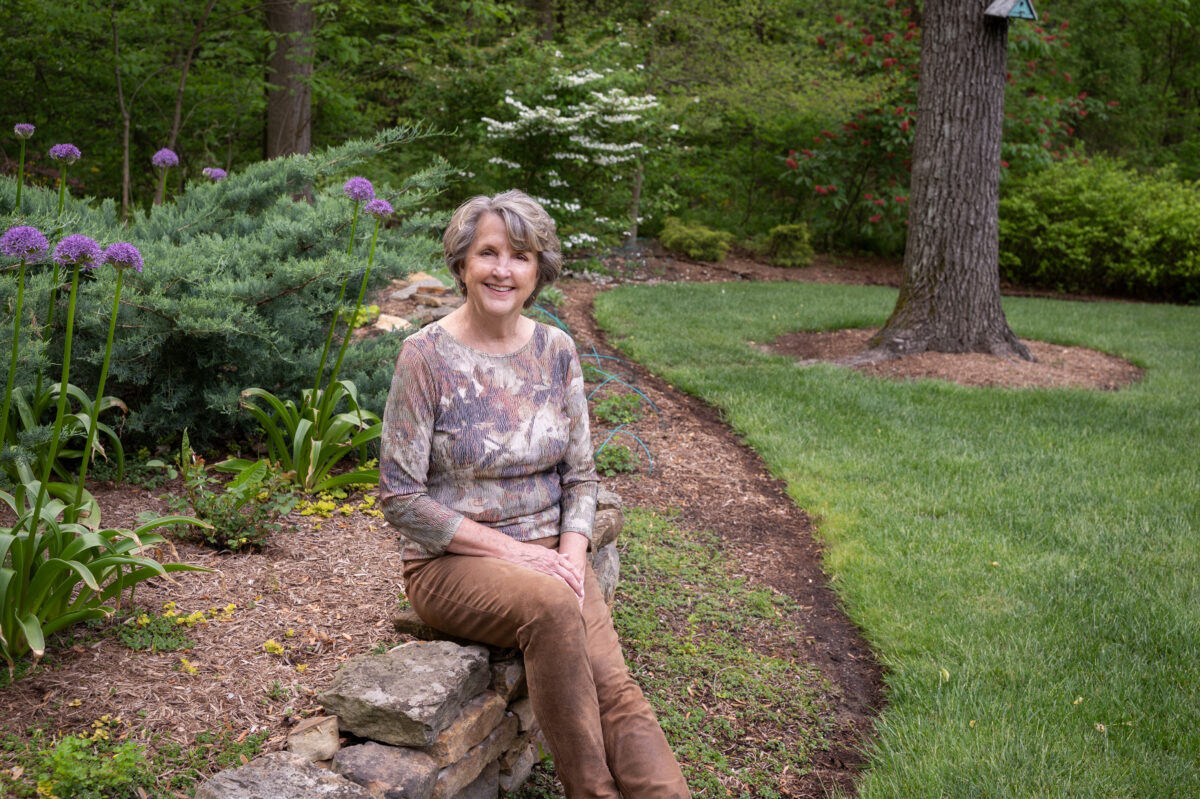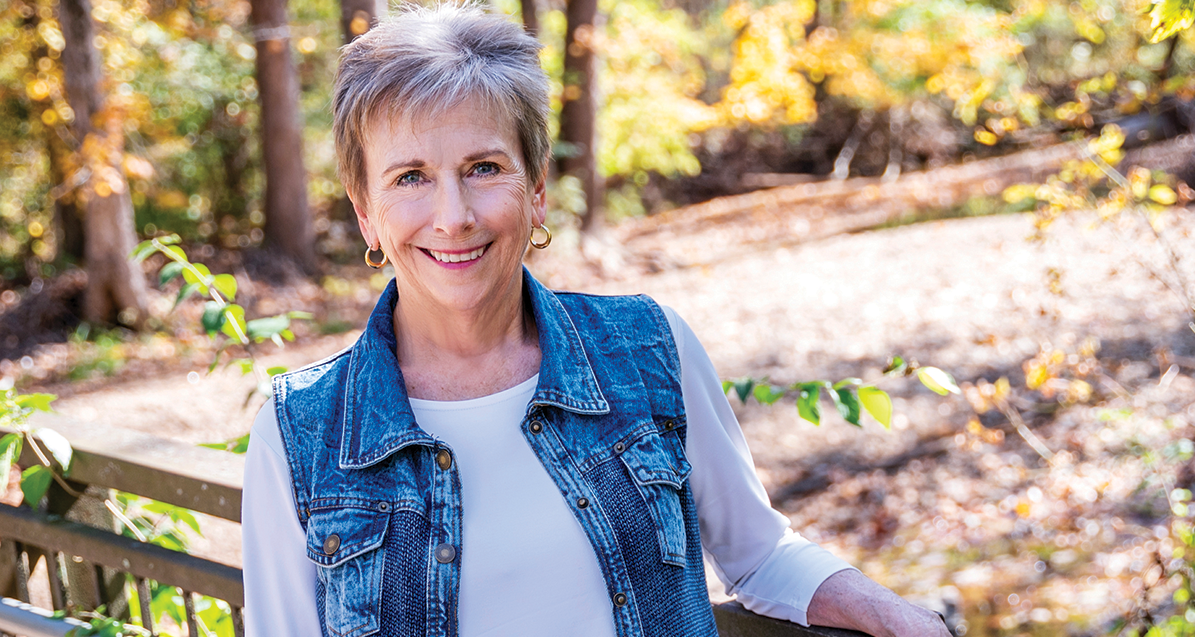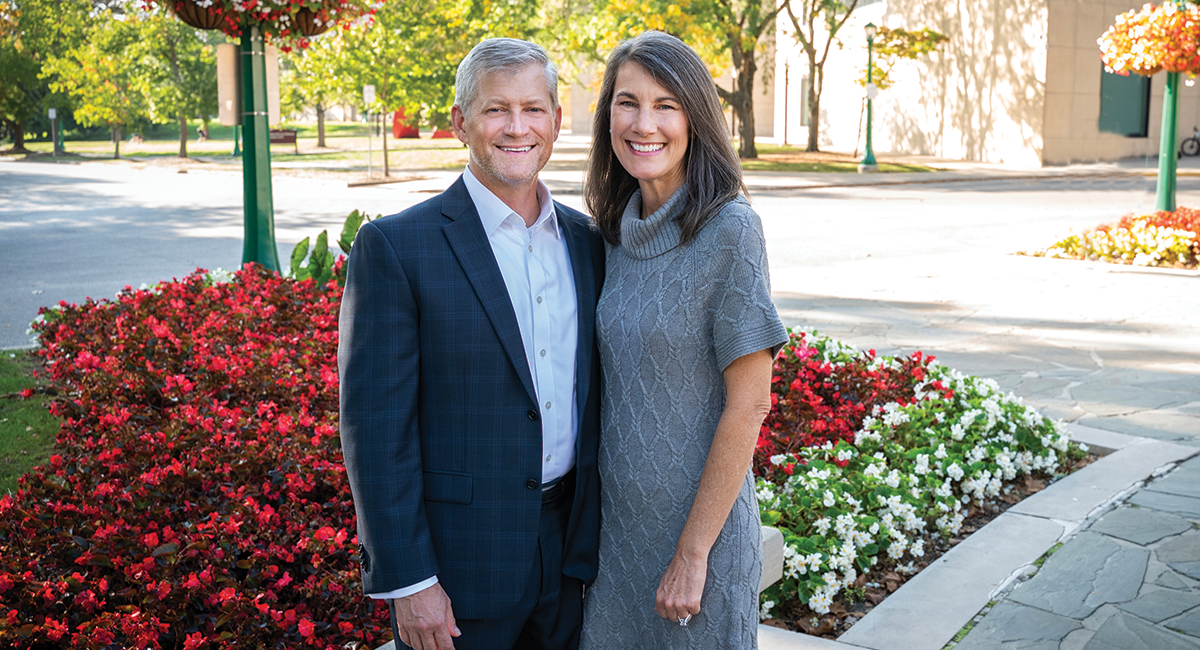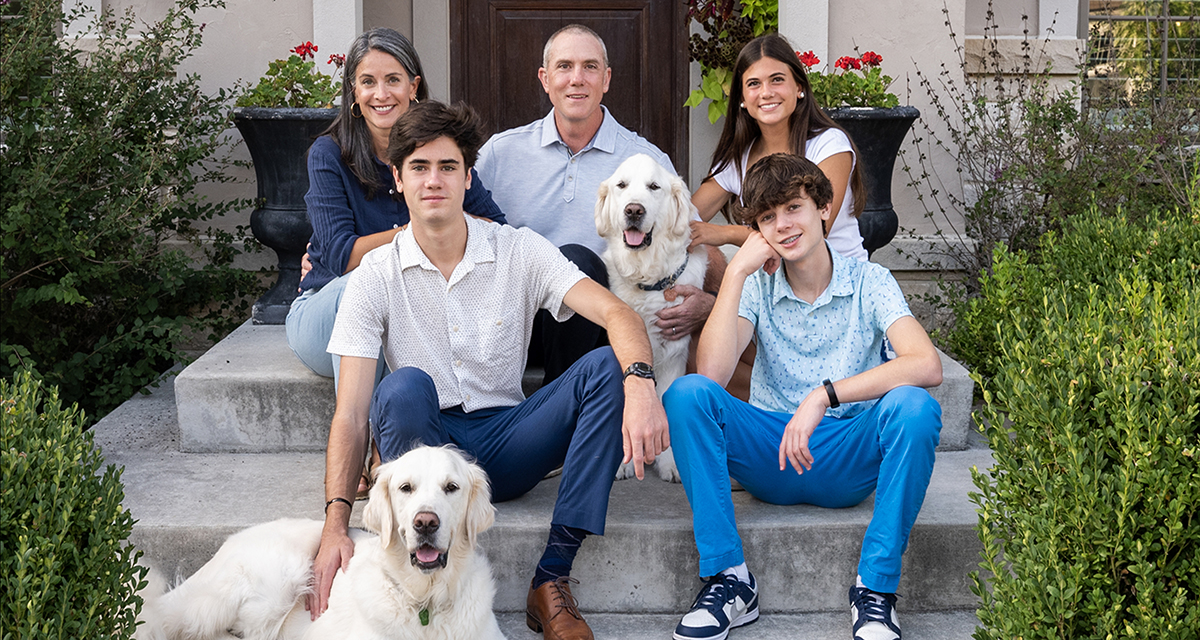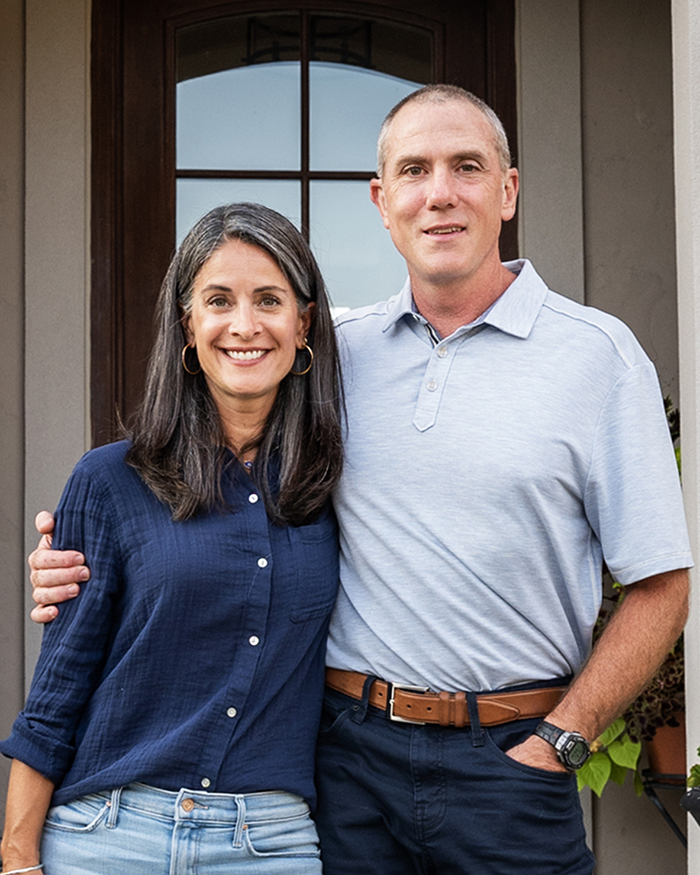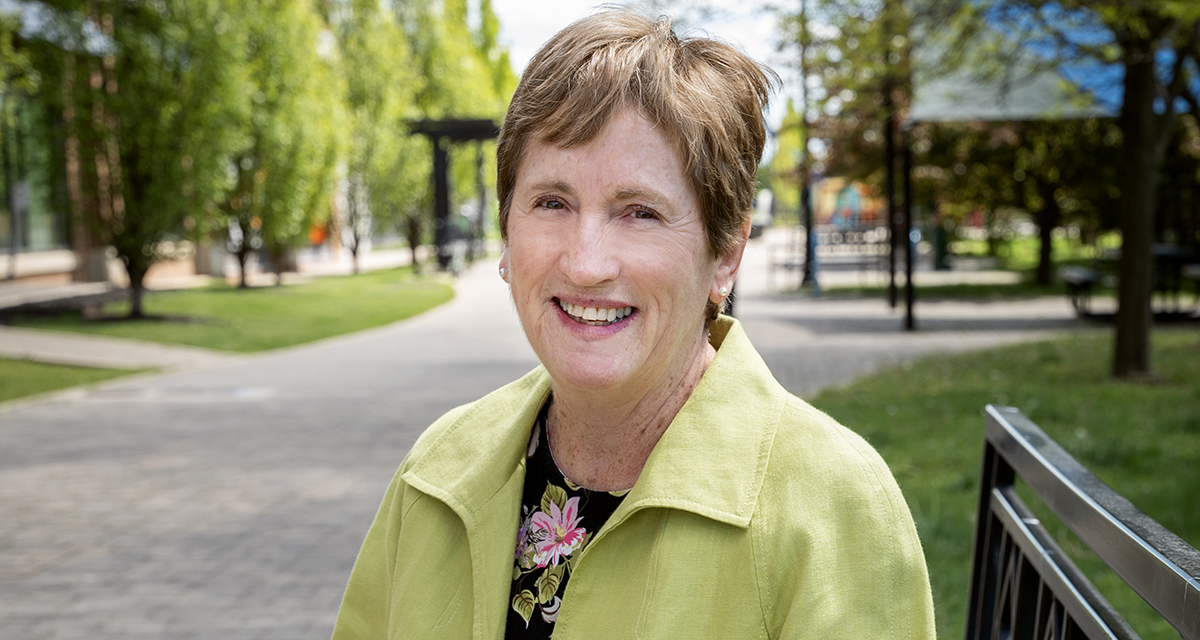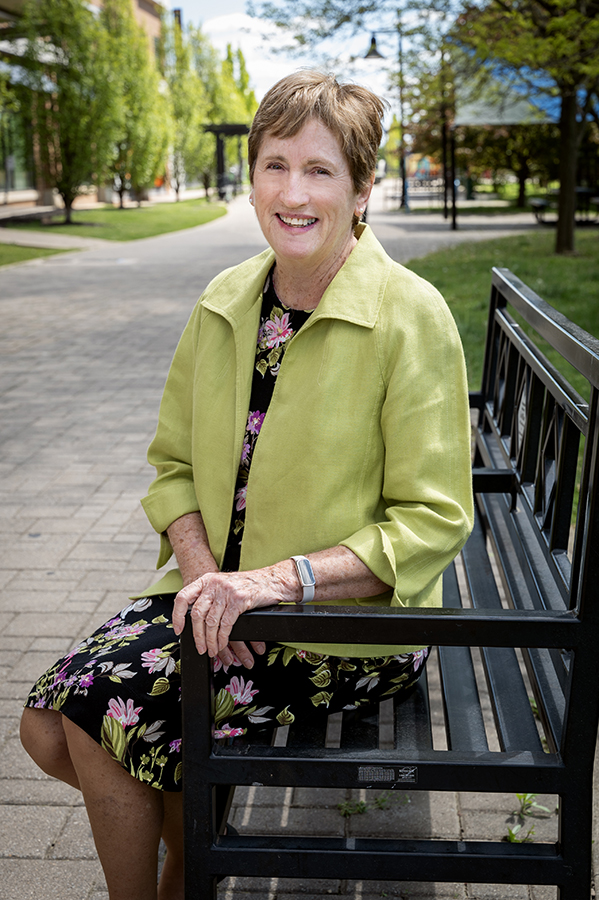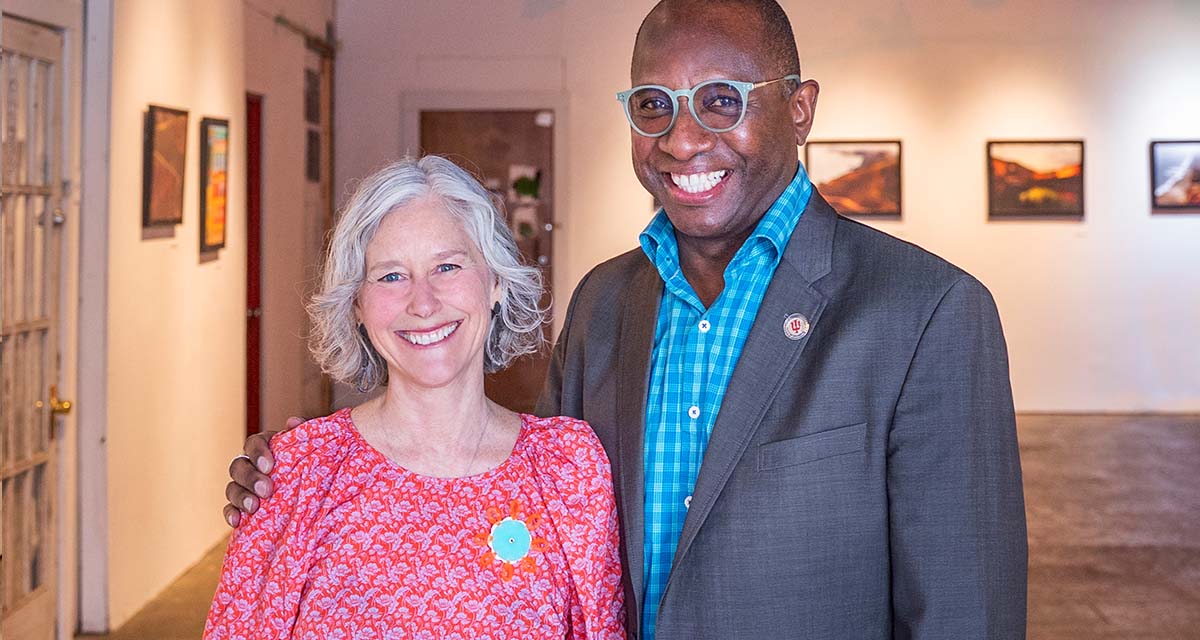“My home is really special to me, and leaving it to the Community Foundation in my will to help alleviate homelessness felt like the right thing to do. With my estate gift, I hope more people can have their own safe place to call home.” -Kathy Weller
Kathy Weller values Monroe County as the place where she and her family decided to settle. In this story, Kathy shares her passion to support housing security in our community.
“Through circumstances beyond their control, many families in our community have nowhere to call home,” said Weller. “I have been blessed that I never had to worry about where I was going to lay my head at night. By gifting my home to the Community Foundation, my house will support our neighbors who are housing insecure.”
Kathy grew up in Ft. Wayne, Indiana, before attending Purdue University to pursue a degree in landscape architecture with a focus on residential design. After college, Kathy married Steve Weller, an Indiana University graduate with a master’s degree in biology. Once they married, Steve made a pivot in his education by also studying landscape architecture. Steve began specializing in park planning and administration in Northern Illinois. This led to the Wellers starting their own business, Ecological Planning, where they worked restoring wetlands to make up for development impacts in the Chicago area.
Kathy retired from residential design to work full-time with Steve on their wetland restoration business and to raise their two children, Amelia and Nathan. While their projects remained in Illinois, they searched for a new home in Indiana so they could return to their roots and reconnect with their families.
In 2004, while visiting family in Ft. Wayne, Steve stumbled upon an intriguing real estate listing in Bloomington. The family decided to extend their stay to explore the property, which ultimately led them to find their forever home here.
After Steve’s passing in 2022, Kathy wanted to continue his legacy by giving back to the community they loved. “The driving force of my giving is having empathy for people and causes beyond myself,” she said. “We are all collectively responsible for sharing our blessings and good fortune in the best way we can to help others who have fallen on hard times.”
Kathy decided to establish the Weller Family Fund with the Community Foundation as a donor advised memorial fund to Steve. She shares her experience: “Giving brings me so much joy and continually energizes me to do more. A benefit of partnering with the Community Foundation is their expertise in knowing the needs of the community. I became aware of their good work in bringing together individuals and organizations who work together to better Monroe County.”
After creating the Weller Family Fund, Kathy continued to look for more ways to invest in Bloomington.
“As I considered what I could do for my community, I received an impact report from the Community Foundation about the Heading Home initiative, and it made sense to gift my own home to benefit those efforts,” Kathy said. “I thought about how hermit crabs shed their shells when they’re done with them and leave them for another crab to use, and I thought I could do the same thing with my house. So I named the Community Foundation and their Housing Security Endowment in my estate plan.”
Heading Home of South Central Indiana was established as a result of the leadership work the Community Foundation and others facilitated in 2020 to address the challenges of housing insecurity. Heading Home and the resulting Heading Home Plan were created to make homelessness rare, brief, and non-repeating. The Community Foundation’s Housing Security Endowment will provide long-term, sustaining funding for efforts that align with the Heading Home plan.
The Community Foundation can receive all kinds of gifts in different forms to benefit the Housing Security Endowment or any of its other 290+ funds. A gift of real estate or property, like Kathy’s, is a powerful example of giving assets besides cash. “Naming the Community Foundation as the beneficiary for my home was almost no effort. The Community Foundation wrote up a memorandum of my charitable intent, summarizing the purpose and details of my gift,” she said. “It was quite easy.”
The Community Foundation will assume ownership of Kathy’s home after her life. The proceeds from the home’s sale will support efforts to improve housing security in Monroe County in perpetuity. “Unhoused persons are part of our community. If someone doesn’t have their basic human rights of food, clothing, or shelter, the community pitches in, and we all rise up better together,” said Kathy.
Kathy shares, “Giving is an innate part of our nature, and it really is like a circle: to receive and to give back. Many generous volunteers and donors in our community have been integral to the Community Foundation’s success. They have been doing this for decades, and I am honored to join them in giving back.”
Kathy’s house will have a lasting impact in our community. By designating the Community Foundation and its Housing Security Endowment as the beneficiary of her estate, Kathy will transform her home into a sustainable source of giving so that others don’t have to go without a home.

